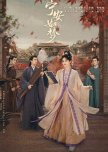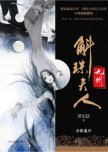 Most Popular Chinese Actresses on MDL Part 1
Most Popular Chinese Actresses on MDL Part 1 Le sixième prince Lin Yi est un prince ambitieux et calculateur du royaume Tian Sheng. Pourtant, il doit dissimuler sa véritable personnalité derrière une façade insouciante après que le troisième prince Ning Xiao ait été accusé de haute trahison. Plusieurs années plus tard, il établit un réseau d'informations secrètes dirigé par Xin Zi Yan, tuteur principal de l'Académie de Qing Ming, afin de lever les fausses accusations portées contre son frère. Feng Zhi Wei est la fille illégitime du clan Qui et elle a été bannie de son foyer après avoir été accusée à tort d'un crime. Pour survivre, elle va devoir se déguiser en homme et va rejoindre la prestigieuse Académie Qing Ming. Elle deviendra générale et politicienne grâce à son talent et ses connaissances et elle se lie d'amitié avec Ning Yi. Elle découvre par la suite qu'elle est la seule survivante royale d'un royaume déchu. Elle croit que le royaume actuel a été construit sur les cadavres de ses proches et décide alors de se venger de ses amis et y compris de Ning Yi. (La source: Nautiljon) ~~ Adapté du roman Huang Quan de Tianxia Guiyuan. Modifier la traduction
- Français
- 中文(简体)
- Русский
- Português (Portugal)
- Titre original: 天盛长歌
- Aussi connu sous le nom de: Huang Quan Yi Tian Xia , 凰权·弈天下 , Tian Sheng Chang Ge , 天盛長歌
- Réalisateur: Liu Hai Bo, Shen Yan
- Scénariste: Wen Qing Xie Pei, Zou Yue
- Genres: Historique, Romance, Mélodrame, Politique
Où regarder The Rise of Phoenixes
Distribution et équipes
- Ni Ni Rôle principal
- Ni Da Hong Rôle principal
- Zhao Li Xin Rôle principal
- Edward Zhang Rôle Secondaire
- Bai Jing Ting Rôle Secondaire
Critiques

Machiavelli in love.
The first thing that comes up in any discussion of the Rise of the Phoenixes is that it has a bad ending. I put this in cold storage because I didn't want to be punched in the face after 70 episodes. After watching, l can confirm that it does indeed have the worst ending ever: 5 bad minutes that make little sense. The rest of it is so engaging that I loved almost every moment, plot flaws and all. It is one of my top 3 dramas. There is a spoiler discussion of the ending at the bottom if you scroll down.This was adapted from a popular novel (which I did not read) that had tragic elements but did not end in tragedy. Most of the flaws can be traced back to a fatal decision to change the book ending. That resulted in plot inconsistencies and several main characters making odd and uncharacteristic decisions in order to force this outcome. This begins from about episode 50. The last arc (~10 episodes) are the least convincing and closes the drama at its weakest moments. There are excellent reviews here that analyze the plot holes and flaws with this drama so I won't deep dive any of that. I will focus on what makes this hidden gem irresistible and unforgettable in spite of the negatives.
This is a political drama about the ascent of Ning Yi, the 6th prince of Tiansheng. Raised amidst palace intrigue, betrayal and murder, Ning Yi is a somewhat dark character who is an ultimate survivor. He is the quintessential Machiavelli; a ruthless manipulator and a consummate Go player both literally and figuratively. Wrongfully banished for eight years, he claws his way back to favor, methodically eviscerating his scheming brothers along the way. Initially his purpose is uncover the mystery behind his mother's disappearance and avenge his third brother's deposal. As he gains power, the goal posts change as he aspires to unite the kingdom and make it a place where all are equal in the eyes of the law. Like all characters destined for political greatness, Ning Yi believes that the ends justify the means and ruthlessly and deftly eliminates anyone in his way. He is a guarded character that conceals his true self behind a mockingly care-free and cynical façade. Shards of radiant light emerges when his core convictions are tested and when the people he cares for are threatened. Chen Kun's deliciously portrayed Ning Yi is brilliant, dramatic, wicked, ferocious, daring, charismatic, mischievous, sentimental and utterly unforgettable. I could not get enough of his wandering eyebrow, the wicked gleam in his eyes, his vehemence and his diabolical sense of humor. Ning Yi is an endlessly fascinating, one of a kind character that is by far my all-time favorite c-drama protagonist.
Fang Zhiwei for the first ~50 episodes is the rare strong female lead character we don't see enough of. She is the lowly niece of a powerful minister that is raised in his household on sufferance. She is highly educated, clever, idealistic and audacious enough to take charge of her own destiny. She encounters Ning Yi for the first time in a bold attempt to foil her uncle's plot to marry her off to this powerless prince in her cousin's place. He is intrigued by her and recognizes her resourcefulness could be useful to him. But she has a mind of her own and does not fall in with his plans that easily; as often as not they end up on different (though not necessarily opposing) sides. With Ning Yi's help, she disguises herself as a male scholar Weizhi and enrolls in the most prestigious school in the capital. She gains recognition as the Ultimate Scholar and becomes an influential member of the court and trusted confidante of the emperor. I love strong female characters like this and Ni Ni really shines in this role, especially when she goes toe to toe with Ning Yi. She is as persuasive as the boyish, accomplished and cunning Weizhi as she is the exquisite, vulnerable and overly idealistic Zhiwei. Zhiwei/Weizhi is a consistently awesome character until she sheds her identity as Weizhi and becomes Zhiwei again. At that point, in all the moments that matter she loses her common sense and regresses into a naïve, overly emotional and easily manipulated Zhiwei who no longer knows what she wants. Unfortunately this remarkable character was thrown under the bus to facilitate the dreadful ending.
Ning Yi and Fang Zhiwei were just made for each other. Only actors of Chen Kun and Ni Ni's caliber can express intense passion and longing while barely touching and the wordless communication of two soul mates who just know each other. All of their interactions are mesmerizing - their spirited and witty banter, the way Ning Yi chokes with unholy mirth every time he teases her and of course the biting scenes that I couldn't stop re-watching. Every time they part ways, I am devastated by how dejected Ning Yi is; how their body language conveys the true feeling behind the false bravado of their words. Ning Yi is proud of, not threatened by Zhiwei's abilities and independence, even when she challenges him. Thus Zhiwei bails out Ning Yi as often as he saves her. They are the ultimate power couple, a force to be reckoned with when they are united against some rather formidable villains. By no means invincible, they suffer crushing personal losses and setbacks that among other things forces Ning Yi to make the hardest sacrifice to keep Zhiwei safe.
The romance is so consuming it sucks you into rooting for them through many obstacles; blithely ignoring the blatant warnings throughout that it doesn't end well. This overshadows the fact that this drama is actually about political strife both internal and external. Together our main protagonists deal with internal conspiracies, ambitious princes and politicians, rebellious fiefdoms, remnants of the former kingdom, encroaching neighbors and a devious and paranoid emperor. The emperor is a distant father with too many sons that he treats as little more than pawns and potential usurpers. He is the one person that Ning Yi cannot protect Zhiwei from once her origins are revealed. Their worst enemy however is misplaced fiduciary to an older generation that can not let go of the past so that the younger generation can follow their hearts and dreams.
While the plot is complex with multi-faceted main characters, the overall narrative is clear, well paced and easy to follow. Despite some messy transitions and plot holes (likely due to censorship), the meaning and general thrust of the storyline is intact. The dialogue is witty and sprinkled with light humor that balances politically heavy tone of the drama. The characters are colorful and many have lovable quirks: Nanyi's odd eating habits, Ning Sheng's priceless facial expressions and Helian Zhang's parody of a lovesick fool. Both main protagonists have meaningful and independent relationships with the other core characters; they are not just defined by each other. Ning Yi's key friend, ally and confidante is headmaster Xin Zhiyan, an ambitious and wily strategist. He is protected by the fiercely loyal Ning Cheng, who is the couple's greatest champion. Zhiwei is aided by the dependable Yan Huaishi and protected by the devoted and silently lethal Gu Nanyi. The characters are well written, with their own priorities and agendas and have free will. Ning Yi and Zhiwei's relationship and their actions create uncertainly and friction in some of these surrounding relationships that sets in motion a number of unexpected and exciting plot twists with some heartbreaking consequences.
Though the last ten episodes are the weakest with pathetic and unconvincing villains, I still wanted to see the last main villain go down. Although I was warned, I won't lie: the last 5 minutes were still despicable and unforgivable. It was also completely out of character for Fang Zhiwei and thus not convincing. It was so bad I didn't even feel sad, I just kept shaking my fist at the TV. That said, this drama must be judged in its entirety and remains emphatically one where the journey is much more important than the destination. What a thrilling and riveting journey! I started to re-watch it almost immediately, something I haven't done since TMOPB. I really want to give this a 10 because I love it so much I just don't care about the flaws. But I knocked off 0.5 anyway as my petty and impotent vengeance for the ending.
On re-watch I realized that the ending can be interpreted as open which I discuss below (MAJOR SPOILER).
Warning: Major Ending Spoiler
In Zhiwei's last conversation with Nanyi at their base in the capital, he reiterates that he goes where she goes. He asks her if she is really going to marry Ning Yi and be his empress. She asks if that would be such a terrible thing? We may not have been shown the whole conversation which ends with Nanyi saying that he will wait there for her, implying she is coming back (and not marrying Ning Yi). The ending jump scene had a very surreal quality to it, almost as if it were a dream and not real. It can be argued that she fakes her death and disappears with Nanyi. This would be much more in character for Zhiwei. It would also be closer to the book ending which has her faking her death and eventually reuniting with Ning Yi who gives up the throne for her (credit to @Skibbies who shared the book ending with me). I think most viewers (including myself) were so shocked and dismayed they missed this subtlety. Though less obvious, it is the ending interpretation I prefer. I understand why Zhiwei wouldn't want to be empress when their path to the throne is littered with bodies but she is also smart enough to know that their cause was never her cause and that would be too unfair to Ning Yi. Ning Yi and Zhiwei have done enough for king and country and deserve a chance to enjoy their uncommon love as common people.

The plot is actually about princes' power struggle with sprinkles of romance, the focus is on Ning Yi, Feng Zhiwei plays second fiddle to him, do not come in looking for romance, you will probably be disappointed. Their interactions were actually pretty jarring compared to the rest of drama due to its different tone. It was super restrained, there were no real kiss here, I'm serious! There were just scenes hotter and cuter than kisses. I do like what's shown of their romance, it's nice to have an OTP who understand each other on a fundamental level and have similar ambitions, even if they disagree when it comes to methods. It meant they don't really go through misunderstandings, until the drama crashed and burned in the last 10 episodes, but I digress. It's lovely to have a drama that cared so much about details and trusted the audience enough to interpret things that's half said, the schemes were fun since everyone, including multiple antagonists who were smart, so it was always multiple parties trying to further their own agenda and screw up lead to unexpected circumstances. The protagonists weren't infallible either, they disagreed and sometimes they end up doing things that would seem unwise to the audience. This drama doesn't really play by the books.
The thing is, the first half of the show, up to ep 45 is fairly steady, packed with lots of information in each episodes. Then Minhai arc got shaved off probably 75% because of NRTA*, which ugh but can't be helped, we can make out important things that happened (it's all in the dialogues) but that's a pretty bad viewing experience. It returned to normal with some explosive acting, Jinshi arc was relatively simple because scriptwriters couldn't really touch it but I think it was mostly fine, Dayue arc got probably 30% cut, but it was mostly still there. Then came the last arc, which I'll just say features a lot of sudden appearance, sudden deaths, sudden misunderstandings (which will get cleared up, no worries! but it sure as hell shouldn't have happened) I suspect that the ending was a very rushed rewrite (which would explain all the plot holes) and the pacing was 3x of the earlier episodes, making everyone who stuck around for 60 episodes fairly confused. The events and character motivations do make sense if you analyse it and fill in the gaps, but they needed more lead up, foreshadowing and detailing that it was so good at before. Never have I, after watching 70 episodes, wanted to have more episodes so the story wouldn't feel so jarring. I honestly think when they edited it, they should have repaced the drama, if latter arcs were cut due to main plot not popping out, this is NOT how you pop it out.
Ning Yi, as a protagonist is one of most layered character I've seen. He is a gifted manipulator, but also someone who care deeply for people close to him because of his childhood. He can be ruthless to his brothers. childish and awkward with Zhiwei, utterly broken when it comes to his mum. He deeply wants a father-son relationship with the emperor but they sort of can't, as being an emperor means being on guard even against your son. He's pretty morally grey, but some of his lines were dubbed over due to NRTA (most notably, end of crown prince arc and the ending). Chen Kun did an astounding job playing Ning Yi, I was quite bemused by his overacting in the first episode. which I know can put off people, it's just Ning Yi likes to be on the edge and taunt people. I was also not a huge fan of his long hair look, but it did signify Ning Yi's carefree attitude. Chen Kun can definitely overact at times, rather like stage acting, but he's also very good at microexpressions and small gestures that just make some scenes so much more real.
Feng Zhiwei is the female lead that I love through and through, even if I'm somewhat disappointed with how they wrote her. To make her more realistic (compared to how OP she was in novel), she was made into a smart but bit naive and impulsive girl who gets dragged into power struggle for the throne and had to grow. That's fine, except Minhai arc was basically her time to show her abilities is equal to Ning Yi got cut (because the main plot doesn't pop? political reasons? idk). Jinshi and Dayue both had limited time and significant changes, so while she wasn't helpless, she was still partially damseled to prop up Ning Yi more, who honestly doesn't need more focus. I know the romance is linked to the plot but it's just badly plotted. I do appreciate that FZW is more straightforward, so she tends to lead the romance. I LOVED Ni Ni who portrayed her, she's gorgeous as a man AND a woman, and neither looked jarring. She had some of the best crying scenes I've seen and had wonderful chemistry with her co-actors. I shipped the otp so hard and was deep in otp hell for a long time after this drama.
My other favourite character is probably the emperor, who was the smartest I've seen in recent years. Emperors in these kind of dramas are usually overly suspicious or useless, and he's neither. He's not a good father or even a good husband, and I'm pretty sure he's sort of an antagonist but that doesn't stop him from being a complicated person. Thanks Ni Do Hong, I'd watch all your scenes all day long. Headmaster Xin had great chemistry with Ning Yi, they shared the same goal but had very different methods and priorities making their scenes a blast to watch. The various princes all had their shining moments too!
It's such a shame most of the people around FZW's characterisations weren't as layered. Her mum was rather conflicted between reviving the kingdom and having her live peacefully, but she was one of the big reason the OTP didn't proceed as well so it's somewhat hard to like her. Her brother is kind of an idiot but had a few nice scenes that I really liked. Gu Nanyi had awesome lines and decent character development, but we weren't show how that happened. I'm actively mad about how they cut out Hua Qiong, who was originally promoted as a main character, and reduced to essentially cameos. Her scenes were largely in Minhai arc, she appeared later and played pivotal role as a best friend and in a scheme then was promptly written out of the story, excuse me?! There wasn't even mourning for her? Helian Zheng actively seemed like he was in a different drama just because of his behaviour and he literally couldn't follow along what Zhiwei is thinking, good as comic relief I guess. I suppose he could also be used as a contrast against Ning Yi, but they also hastily wrote him out of the plot.
Honestly, I think they were too ambitious when they wanted to fuse power struggle + romance, where the OTP can go head to head, they lost their balance. The romance and anything involving the female lead had noticeably more plot holes and was weaker. They also tried to make it more realistic but still fuse in book characters, I love them a lot and would have liked to see a realistic version of them, but I'm in the minority. They should have cut their loses and fused more characters or plot lines. Jinshi is honestly not really needed as an arc, FZW could have gone elsewhere. If it was for uniting the kingdoms, the drama didn't really accomplish that either (whereas the novel managed to establish an alliance there). Dayue had very nice characterisation moments, but it wasn't plotted that well, they could have written other scenes to get the idea across.
I must emphasis this was recorded live while filming, which is super rare in recent years in historical cdramas due to noise pollution, accents and actors' acting. The drama usually have ambience sounds as bgm, and only play its insert songs during important moments. The sets and costumes are exquisite, I did spent fair amount of time just staring at them. I loved the use of go/weiqi, the tea pouring, the small differences in manners in different countries. I'm a little mixed about the dialogue, I have been taken out of the drama by some rather modern words, but it also quote a lot of classical Chinese, some rather cleverly (like when FZW became imperial adviser) , some I had to look up but got its meanings through context, some were just plain wrong. I appreciate the attempt but they could definitely have made it flow better, rather than feeling like they just dropped it into the drama to look well studied.
Despite all of its issues, I still loved this a lot and will probably rewatch it just for acting and characterisation, which is something I basically never do, as someone who largely care about plot. I deeply wish the female characters played bigger roles as they had likely intended before, but even as is, I still love them because they are different and varied, and they are allowed to be flawed, to make mistakes, just as male characters are. I would love to see more effort in fusing more serious elements with romance because that's much closer to life than just fluffy fun times or only serious business time.
P.S: *NRTA is the government agency that all cdramas have to go through, this drama went through it at least twice and they also had people come in half way through filming to check on their progress, and part of the script were rewritten on set. Historical dramas, especially ones that go on prime time slot (this one is, the only other one this year is Ashes of Love) are subjected to stricter scrutinisation, this year have gotten even tighter. Main characters can't be overly dark which is why some of Ning Yi (and maybe Zhiwei?)'s lines were dubbed over.

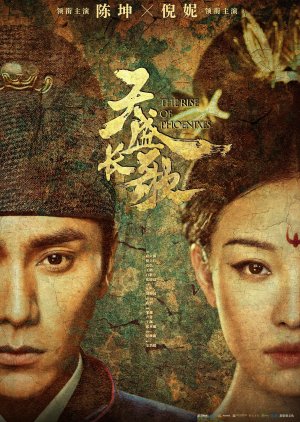








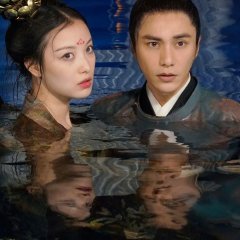

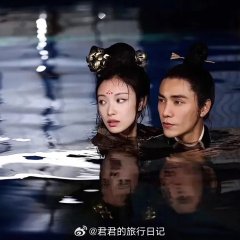

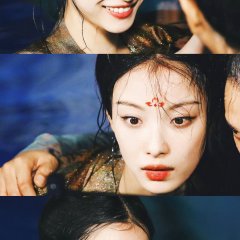

 2
2


